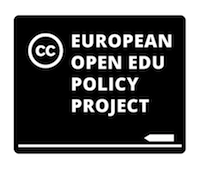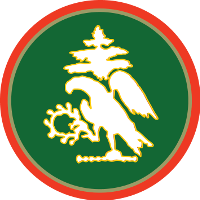 To start the discussion about OER in Romania, we actually have to talk about copyright. People in general have little knowledge about copyright and licences…not to mention OER. Therefore, in Romania we need to focus on information and awareness campaigns targeted at decision-makers, educators, parents as well as pupils and students. At the same time, there is a sense of shyness and reluctance when it comes to approaching this new subject and people hardly stop to grasp and internalize its advantages. Consequently, OER is not yet perceived as a new business model and is considered as a threat to the publishers’ market.
To start the discussion about OER in Romania, we actually have to talk about copyright. People in general have little knowledge about copyright and licences…not to mention OER. Therefore, in Romania we need to focus on information and awareness campaigns targeted at decision-makers, educators, parents as well as pupils and students. At the same time, there is a sense of shyness and reluctance when it comes to approaching this new subject and people hardly stop to grasp and internalize its advantages. Consequently, OER is not yet perceived as a new business model and is considered as a threat to the publishers’ market.
written by Valentina Pavel from the .
[][]
OER without even realizing it
didactic.ro is what I would have liked to refer to as a good practice example. The website (available in Romanian) is an online teacher’s community and the biggest Romanian portal with educational resources for all K12 classes, including technical and vocational education. There are nearly half a million registered members and around 190 000 available resources. Whether there are teaching plans, exercises, extra-curricular activities, literary comments or exam notes and materials, teachers, parents and pupils have the possibility to use, share, comment and benefit from the available resources. There’s only one catch here… what’s missing in this example is for the materials to have an open licence. Although nobody minds if the materials are used, distributed and remixed, it’s not exactly legal from the copyright law perspective. Hopefully, it’s only a matter of time until we will be proud to add diddactic.ro to the list of CC wonderful case studies.
Side talk: Digital textbooks with a very light touch of OER
There is a hot debate going on about digital textbooks for 1st and 2nd grade textbooks, however the legislative proposals do not mention copyright issues. When it comes to the format of the textbooks, NGOs are trying to channel the discussions towards having open textbooks. Therefore, we have to hope for political willingness to extent the idea of OER to digital textbooks. It would be a great opportunity for the Romanian educational system. The Ministry of Education is currently working on a web page (www.manuale.edu.ro) where all the digital textbooks are going to be freely available for download. We are waiting for more info on this and to see how this project will be implemented, what type of format is going to be used and under what licences.
The first policy breakthrough
In its strategic national governmental plan for 2013-2016, the Romanian government mentioned for the first time Open Educational Resources and the integration of IT methods for learning. The strategic plan states that the Romanian Government, together with the Ministry of Education, will ‘support innovative methods for integrating web 2.0 educational resources and open educational resources in the learning process’. At the same time, this governmental plan is backed up by the European Open Data initiative and by signing the Open Government Partnership in 2011. In conjunction to this, the National Education Law mentions a Virtual Library and an e-Learning platform. However, there are no norms as to how this law should be applied.
In short, the progress is slow, but at least there are some policy and legislative texts to fall back on and to give decision-makers a sense of direction.
A step forward
A strong civil movement is starting to take shape regarding OER and open licences in a more broader sense. There are several NGOs who usually partner up and work together in these kinds of open initiatives. The most recent example is a project on OER organized together by ApTI (The Association for Technology and Internet), Kosson, ANBPR and Soros Foundation. In the next months they are going to organize 4 workshops in 4 different cities in Romania and talk to librarians, academics and university staff about copyright issues, open licences and OER. They launched this project at the national librarian’s conference in Sibiu which took place between 10-12 October. The first conclusions are that OER could definitely find its place amongst the projects librarians are designing and implementing all over the country for their local communities.
At the same time, there are other small initiatives such as an open legal education website that wants to make the legal language more accessible and empower people with information about their rights while promoting civil engagement. Although it is still under construction, we are hoping to see the beta version of the website some time at the beginning of next year.
I am looking forward for more initiatives and results in OER as the wave of curiosity is gradually starting to build up. More information on the OER situation in Romania will soon be available in a report written by the Soros Foundation some time by the end of this year.












